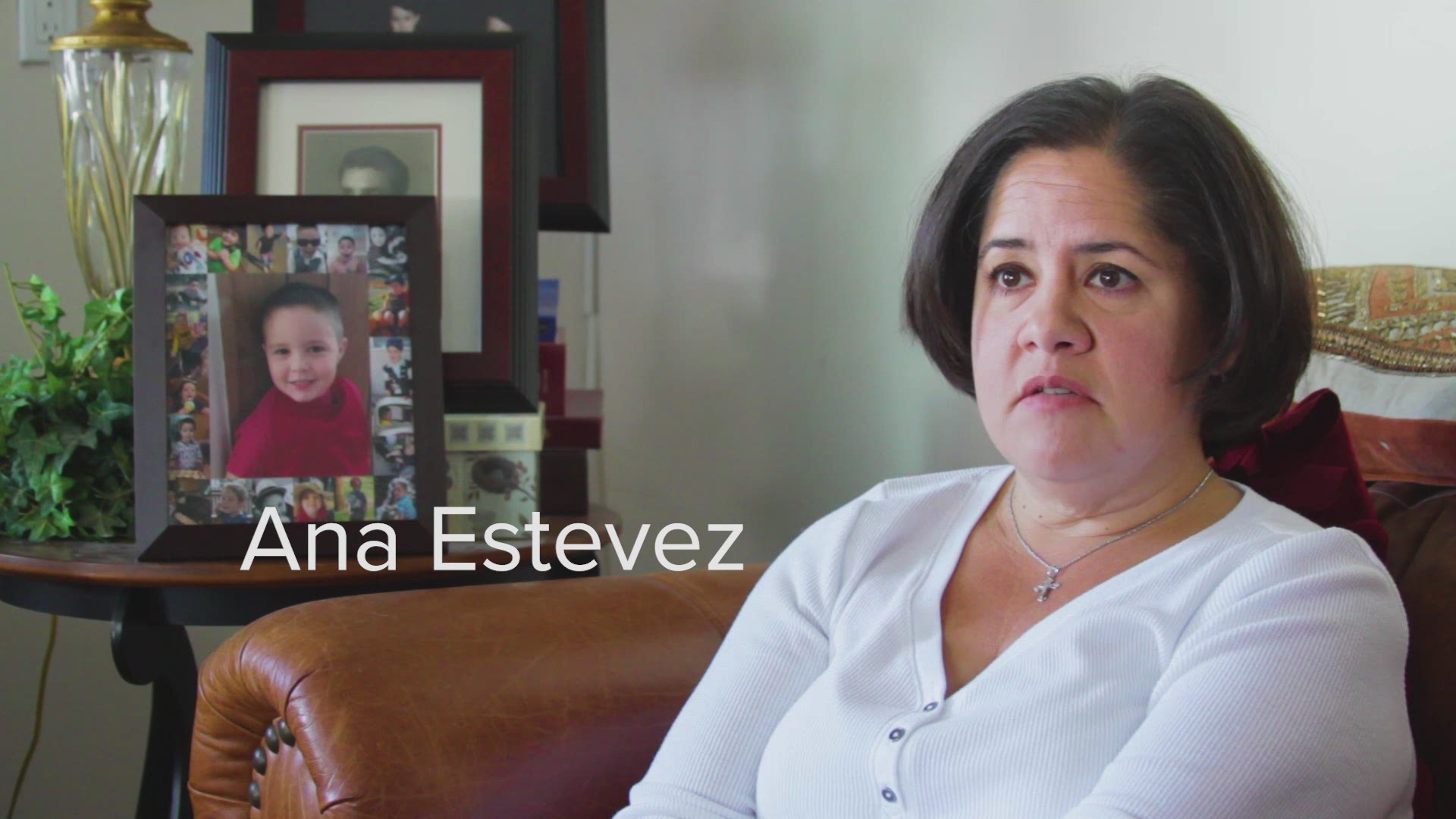Ana Estevez stood up in tears watching from the balcony when Assemblywoman Blanca Rubio, D-Baldwin Park, pointed her out from the floor of the Assembly. Piqui’s resolution had just passed with 69 cosponsors.
For the past year, Estevez has been increasing her advocacy work, meeting with members of Congress and California lawmakers, pushing for a resolution named after her son. The resolution seeks to protect children by prioritizing the “safety of the child” in custody decisions over the current standard of “best interest.”
It seems minimal, but when judges make custody and visitation decisions, according to California Family Code 3011, judges weigh many factors, including safety, health, and welfare to determine what is in the child’s “best interest.”
Some domestic violence advocates say that so long as “safety” does not supersede all factors, child abusers and perpetrators of domestic violence will continue getting full or partial custody of their children.
The resolution also asks for court reporters in custody and domestic violence court proceedings and that all court professionals are trauma-informed in domestic violence and child abuse so they know how to identify and assess such cases.
A year, to the day, before Piqui’s resolution passed, Estevez was also crying. She was in a courtroom in Los Angeles telling her ex-husband Aramazd Andressian, “I pity you. You are a failure as a father. You are a failure as a man. You are a failure as a human being. I wish that I was taken instead of my son.”
That day, Andressian was sentenced to 25 years to life after pleading guilty to the murder of their 5-year old son, Aramazd Andressian Jr., known to the family as "Piqui."
Besides her ex-husband, Estevez blames the family court system, Child Protective Services, the custody evaluator who wrote a report granting Andressian more time with Piqui, and the judge who adopted that report and made it an order.
“From day one the judge appeared to be very biased, whatever Ara said, he took as gospel. No matter what I did or said or provided as evidence, nothing was even considered,” Estevez said.
When she filed a restraining order, Estevez said the judge, “called me a liar. He said Ara’s testimony was more credible than mine.”
The custody evaluator concluded “bad parenting” by the father, but not enough evidence to switch custody and said she would “talk to the father.” The father’s attorney allegedly tried to pin
The recommendation was that Piqui needed a less disruptive schedule and that he would alternate full weeks between both parents. On April 15, a Saturday, Estevez said she took Piqui to his father. She spoke with Piqui, as the court mandated, on the following Tuesday. For the next scheduled call, on Thursday, Andressian didn’t connect. Estevez waited and waited and finally when her and Ara’s attorneys both failed to reach Ara, she called the police.
Authorities found a semi-conscious Andressian somewhere in South Pasadena, in his car, which had been doused with gasoline. Police didn’t have enough evidence to charge him with child endangerment. Within 72 hours, they let him go.
During the next 72 days, Andressian insisted he didn’t know where Piqui was. He tried to blame Estevez for the disappearance. He said Estevez’s family took him and were hiding him in Cuba. Then he took off to Vegas. He went to concerts, hired prostitutes, and changed his appearance. When the LA detectives investigating Piqui’s disappearance discovered his father applying for visas to countries without extradition treaties with the U.S., they arrested him.
Andressian finally confessed and led police to Piqui’s body. He had strangled his son 72 days earlier and propped his body on a tree in the desert.
“My son's body had decomposed, so he was skeletal and they had to do a DNA test to confirm his identity,” Estevez said.
HR 113, Piqui’s resolution, though not legally binding, is a step in the right direction, said Rubio.
“It’s completely separate from actual legislation… But, I intend to pass pieces of legislation that will help in these types of cases,” said Rubio.
Estevez carries an urn with Piqui’s ashes, inside his small backpack everywhere she goes. She spends her days fighting the system that “gave him the tools to murder my son.”
Continue the conversation with Lilia on Facebook.

